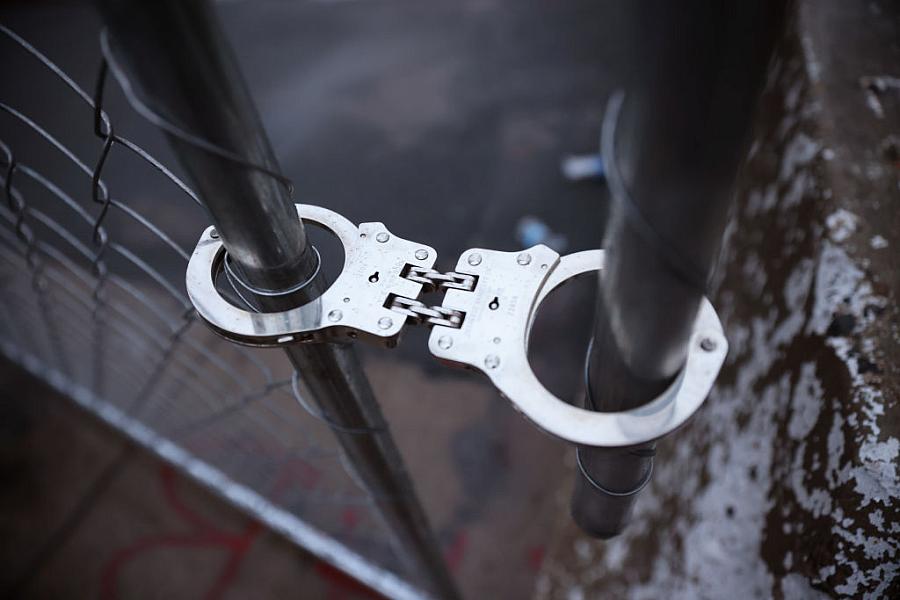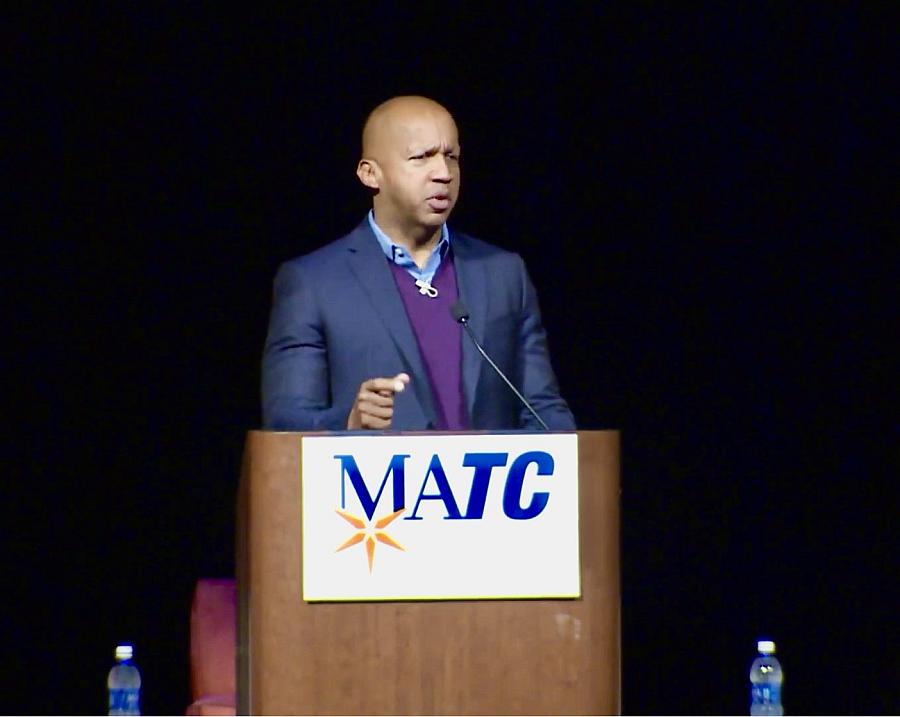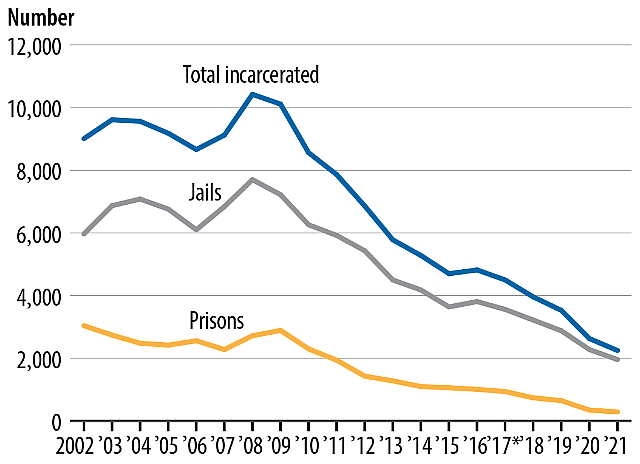The Health Divide: Should juveniles ever be sent to an adult prison?

Photo by Scott Olson/Getty Images
In November 2022, a 10-year-old Milwaukee boy (let’s call him “Ken”) asked his mom to buy him a popular virtual reality headset.
His mom refused, and Ken got upset.
The following morning, Ken told police he was playing with a gun he got from his mother’s bedroom and went to the basement, where she was doing the laundry. He said he was twirling the gun around his finger, and the gun fired, striking his mom. The 44-year-old woman died at the scene.
I’m not identifying the boy or his 44-year-old mother due to his age and the circumstances of the case.
Ken said the shooting was an accident, and the police allowed Ken to stay with his aunt. Ken’s aunt didn’t believe his version of the shooting.
When she asked him where their house keys were, Ken grabbed them and said he had hidden them from his mom. The key ring contained a key that opened a lock box where his mom stored her handgun.
The morning after his mother’s death, Ken logged onto his mother’s Amazon account and ordered the virtual reality headset.
When his aunt questioned Ken about the shooting, he told her he pointed the gun at his mom and pulled the trigger. She said her nephew never showed any remorse about the shooting.
In Wisconsin, children as young as 10 can be charged as adults, depending on the seriousness of the crime.
Despite Ken’s actions, activists in Milwaukee and across the country have called for the case to be moved to juvenile court. On March 11, 2024, a reverse trial started to see if Ken’s case should be returned to the juvenile system.
“To put him back into the juvenile system severely limits the protection to the public and ultimately the protection to (the defendant),” Milwaukee County Assistant District Attorney Gil Urfer told WISN Channel 12.
Charging a juvenile as an adult can impact their future forever
How to prosecute or punish youth for series crimes has long been debated.
Some of the arguments against trying youth as adults are:
- Lack of maturity: Youth brains are still developing and don’t understand the consequences of their actions.
- Rehabilitation: Juvenile justice systems are designed to provide rehabilitation and education to youth, while adult criminal justice facilities are not.
- Permanent consequences: Child rights advocates argue that when you charge a juvenile as an adult, their future is impacted forever.

Photo by Scott Olson/Getty Images
Bryan Stevenson, author of the bestselling novel “Just Mercy: A Story of Justice and Redemption,” has dedicated his life to addressing inequalities in the justice system. He believes children should never be pushed into adult prison or receive adult punishment because of their lack of brain development.
Stevenson, founder and executive director of the Equal Justice Initiative and a grantee of the Open Society Foundations, told The Washington Post that children need extra protection.
Their maturity, judgment, and development don’t permit us to treat them like adults. That’s why we don’t let even the most intelligent kid smoke, drink, vote, or drive cars before they’re eligible, Stevenson said.
Despite Stevenson’s arguments, there are 20 states in the U.S. that allow juveniles to be tried and sentenced as adults, and face life imprisonment in exceptional cases.
For child advocates like Stevenson, there is some good news.

According to the Bureau of Justice Statistics, the number of juveniles incarcerated in all U.S. adult prisons or jails has declined from a peak of 10,420 in 2008 to a low of 2,250 in 2021.
In 2021, 87% of juveniles in adult correctional facilities were held in local jails, and 13% were held in prisons, compared to 66% in local jails and 34% in prisons in 2002, the earliest year for which comparable data are available for both populations, reports show.
Black youth are being transferred to adult prison at higher rates
When Ken was led into court for a “reverse wavier” in March to determine if the case should be sent to juvenile court, his defense attorney, Tanner Kilander, argued that prosecuting Ken as an adult “would result in the longest period of supervision ever ordered in the history of our state.”
Kilander also argued that Ken — a fourth-grader — suffered a concussion when he fell off a swing at school about a year before the shooting. She said the head injury changed his behavior, and he was never the same.
During testimony, lawyers argued for and against sending Ken to juvenile court. Two psychologists also disagreed on his ability to understand courtroom concepts.
Ken sat at the desk during the testimony with a maroon-issued detention sweater and khaki pants. Most of the time, he just twiddled his fingers.
Ken has had several violent outbursts in the past. He took a flammable liquid and set the couch on fire. When asked why he did it, he claimed he heard voices. He also abused a puppy.
Ken’s case is not just about his mother’s death. This case is about whether a child should be punished as an adult for something tragic that he did at the age of 10.
I can’t fathom charging a kid so young as an adult.
The best place for youth who commit violent crimes is the juvenile system, where the focus can be on the child’s rehabilitation. Adult prisons inhibit a youth’s access to treatment, education, and members of support networks to get better.
Some youth advocates also argue that Ken — who is African American — would not be in this position if he were white.
In the U.S., people of color are overrepresented in every stage of the juvenile justice system. Black youth were 2.4 times more likely to be arrested than White youths. In Washington, D.C. alone, Black youth are 11 times more likely to be incarcerated than white youth.
In addition, while overall rates of juvenile incarceration have declined, the rates at which Black youth are being transferred to adult court are among the highest in 30 years of data collection, according to the brief “The Color of Youth Transferred to the Adult Criminal Justice System,” from the National Association of Social Workers.
Stevenson wants all these numbers to go down but said that will start with reforming the criminal justice system.
“Kids should not be sent to adult prison because the harsh environment prevents them from rebounding back from their past mistakes,” he wrote in “Just Mercy.”
Ken will be punished for his actions when he was 10, but how he’s punished is the key. Will it be an adult prison, where he receives little to no rehabilitation, or will it be in a youth prison, where he can one day be rehabilitated?
If we believe that 10, 11 and 12-year-olds deserve to be incarcerated for decades or the rest of their natural lives, what does that say about us as a society?
A decision on Ken’s status will be made soon.
Follow me on X at @jecausey, and I will keep you posted.
